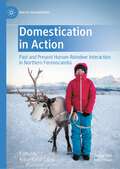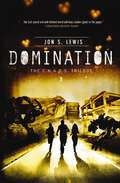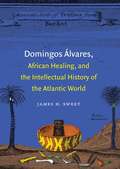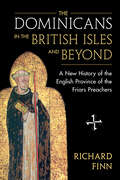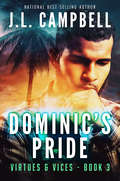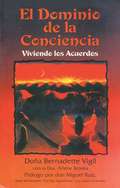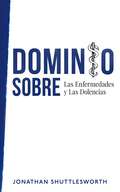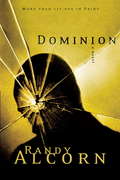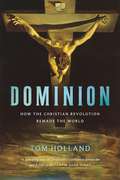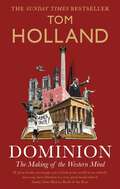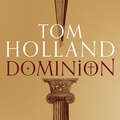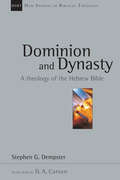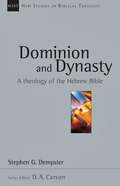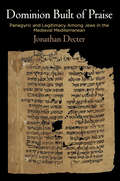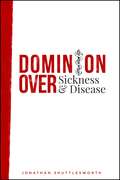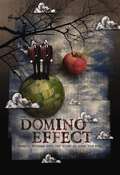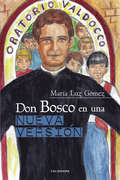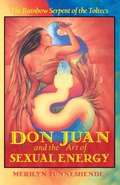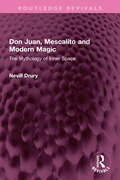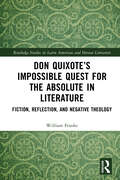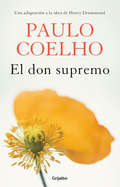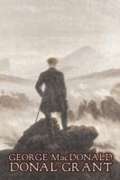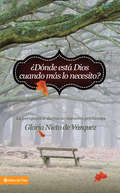- Table View
- List View
Domestication in Action: Past and Present Human-Reindeer Interaction in Northern Fennoscandia (Arctic Encounters)
by Anna-Kaisa SalmiReindeer have been an integral part of the lives of people in Northern Fennoscandia in prehistoric and historic times. Today, reindeer herding practices are changing fast due to climate change, land use pressures and new technologies. This book outlines recent advances in the archaeology of reindeer domestication and development of reindeer herding among the Sámi of Northern Fennoscandia, focusing especially on the identification and understanding of various reindeer herding tasks and practices through archaeological evidence and traditional knowledge of reindeer herders. Covering more than a thousand years of history of reindeer herding, the book explores how reindeer herding practices have always been dynamic and adapted to the changing social, economic and environmental pressures. While reindeer herding practices have changed, they have also retained memory and tradition. The continuity and adaptation of reindeer herding testifies of the resilience of reindeer herders and their animals, and the importance of their relationship in the changing Arctic. This book will be of interest to scholars interested in archaeology, anthropology, and history of the Arctic, as well as local communities and reindeer herders.
Domesticity on Display: Romanian Middle-Class Material Culture from Late Socialism to Today (Consumption and Public Life)
by Maria CristacheThis book examines postsocialist transformations reflected in urban middle-class domestic spaces and in museums dedicated to socialism in Romania. It focuses on the significance and circulation of porcelain and crystal sets and ornaments during late socialism and after 1989, following the experiences of consumers, workers in the glassware and porcelain industry, and artists. By tracing the values and temporalities embedded in materiality, the book sheds light on how objects shape daily life in a time of cultural, economic, and social change. Drawing on ethnographic research, the book offers an in-depth analysis of the ambiguous relation between the middle-class and the socialist state, using materiality and consumption to shed light on contradictions between aspirations and resources and between official discourses and everyday practices. The book reveals changes in practices of display, gift exchange, and barter, in the perception and use of time, as well as in gender and inter-generational relations.This work will be of interest to sociologists, anthropologists and cultural historians, especially researchers interested in consumption, material culture, postsocialism, the anthropology of value and gift, the study of social time, practices of the middle-class, and the history of consumption in Eastern Europe.
Domination (A C.H.A.O.S. Novel #3)
by Jon LewisTHEIR GOALIS SIMPLE: TOTAL DOMINATION. With sixarms and jaws that can snap a man in two, the warmongering race of aliens knownas the Thule has conquered every planet they've attacked. And nowtheir invasion of Earth has begun.Humanity's only hope springs from amysterious Thule legend about a Betrayer, who they believe will rise up anddestroy their people. The American government tried to manufacture their own Betrayerby injecting children with Thule blood but time after time the experimentfailed . . . until Colt McAlister.A decade later, Colt is a 16-year-oldcadet at the CHAOS Military Academy where he's training to defend mankind. Buthe's afraid that the alien blood may be turning him into a Thule--and he's beginningto suspect that fulfilling his role as the Betrayer may cost him everything.Experience a cosmic battle filled withhigh-tech gear, gateways to other planets, and ultimate stakes. Not everyonewill survive. But heroes will rise up and step into their destiny in this earth-shakingconclusion to the C.H.A.O.S trilogy.
Domingos Alvares, African Healing, And The Intellectual History Of The Atlantic World
by James H. SweetBetween 1730 and 1750, Domingos Alvares traversed the colonial Atlantic world like few Africans of his time--from Africa to South America to Europe. By tracing the steps of this powerful African healer and vodun priest, James Sweet finds dramatic means for unfolding a history of the eighteenth-century Atlantic world in which healing, religion, kinship, and political subversion were intimately connected. Alvares treated many people across the Atlantic, yet healing was rarely a simple matter of remedying illness and disease. Through the language of health and healing, Alvares also addressed the profound alienation of warfare, capitalism, and the African slave trade. As a result, he and other African healers frequently ran afoul of imperial power brokers. Nevertheless, even the powerful suffered isolation in the Atlantic world and often turned to African healers for answers. In this way, healers simultaneously became fierce critics of Atlantic imperialism and expert translators of it, adapting their therapeutic strategies in order to secure social relevance and even power. By tracing Alvares' frequent uprooting and border crossing, Sweet illuminates how African healing practices evolved in the diaspora, contesting the social and political hierarchies of imperialism while also making profound impacts on the intellectual discourse of the "modern" Atlantic world.
The Dominicans in the British Isles and Beyond: A New History of the English Province of the Friars Preachers
by Richard FinnThe history of the Dominicans in the British Isles is a rich and fascinating one. Eight centuries have passed since the Friars Preachers landed on England's shores. Yet no book charting the history of the English Province has appeared for close on a hundred years. Richard Finn now sets right this neglect. He guides the reader engagingly and authoritatively through the medieval, early modern and contemporary periods: from the arrival of the first Black Friars – and the Province's 1221 foundation by Gilbert de Fresnay – to Dominican missions to the Caribbean and Southern Africa and seismic changes in church and society after Vatican II. He discusses the Province's medieval resilience and sudden Reformation collapse; attempts in the 1650s to restore it; its Babylonian Exile in the Low Countries; its virtual disappearance in the nineteenth century; and its unlikely modern revival. This is an essential work for medievalists, theologians and historians alike.
Dominic's Pride (Virtues & Vices #3)
by J. L. Campbell"Women. Money. Parties. Dominic Whitehorn’s life revolves around these staples until he wakes up to the reality that he’s broke, and living in a foreign land. He hates his overbearing brother, and can’t stand his mother’s lectures. The only other source of help is his father, who suffers a heart attack. With tighter reins on the family business, and his loan called in, Dominic’s problems multiply. To make matters worse, the woman he’s interested in believes he’s a lightweight, and another claims he’s the father of her baby. Ashley Dennis knows Nick is a troubled soul because she’s been there. They make an unlikely couple, but will her example and conviction be the catalyst he needs to turn his life around? ***Dominic’s Pride is inspirational fiction with a focus on family and relationships. "
El dominio de la conciencia: Viviendo los acuerdos
by Arlene Broska Doña Bernadette Vigil Don Miguel RuizReveals the authentic tradition of Toltec self-mastery • By the working partner of don Miguel Ruiz • Provides a program of 11 Agreements for continuing the spiritual journey The author guides readers through the effective training techniques practiced by Toltec warriors for centuries: mental and physical exercises in visualization, breath work, and meditation—the keys to unlocking the potential of the mind. These techniques allow readers to move through the three levels of ascending spiritual consciousness, from Jaguar Knight and Eagle Knight through Nagual, the level of enlightened master. By following the practices of the spiritual warrior, readers will experience the peace that comes from breaking free of self-limiting thoughts in order to fulfill their true potential. This book also challenges readers to look beyond personal change to transform the collective dream of the planet. Doña Bernadette Vigil is a professional artist and her work has been widely exhibited. She presents Toltec wisdom workshops with Nagual don Miguel Ruiz throughout the United States and abroad. She lives in New Mexico.
Dominio Sobre La Enfermadad y Enfermedades
by Jonathan Shuttlesworth"Dios creó el mundo en seis días. ¡No necesitará más de una hora para resolver tu problema!"~JONATHAN SHUTTLESWORTH, EVANGELISTAMientras que Satanás victimiza a la humanidad a través de la enfermedades y la dolencias, los avances de la medicina moderna dejan a muchas personas indefensas.La única esperanza verdadera está en Jesús. Hoy, la revelación de Cristo resucitado trae transformación y ayuda inmediata a los que sufren tal como lo ha hecho durante miles de años.A través de una comprensión bíblica de las cuatro categorías de enfermedad y enfermedades los trece pilares de la sanidad divina y las seis razones por las que puedes esperar que Dios te sane de inmediato, el dominio sobre la enfermedad y la enfermedades está disponible para todos.Incluso si estás acostado en tu cama de hospicio, no hay nada que el Diablo te haya hecho que Dios no pueda cambiar HOY. Verdaderamente, lo que el Diablo quiso decir para el mal, Dios lo convertirá en bueno.SOBRE EL AUTOR Jonathan Shuttleworth es evangelista y fundador de Reavivamiento Hoy, un ministerio dedicado a alcanzar a las personas perdidas y heridas con el Evangelio de Jesucristo.En cumplimiento de su llamado, el evangelista Shuttlesworth ha llevado a cabo reuniones y cruzadas al aire libre en toda América del Norte, India, el Caribbian, y África Central y del Sur. Cada día, miles de vidas se ven afectadas a nivel mundial a través de Reavivamiento Hoy radiodifusión ubicada en Pittsburg, Pensilvania.
Dominion: Three Novels: Deadline, Dominion, Deception (Ollie Chandler Series #2)
by Randy AlcornSweet Revenge? When two senseless killings hit close to home, columnist Clarence Abernathy seeks revenge for the murders-and, ultimately, answers to his own struggles regarding race and faith. After being dragged into the world of inner-city gangs and racial conflict, Clarence is encouraged by fellow columnist Jake Woods to forge an unlikely partnership with a redneck homicide detective. Soon the two find themselves facing dark forces, while unseen eyes watch from above. This re-release of Randy Alcorn’s powerful bestseller spins off fromDeadlineand offers a fascinating glimpse inside heaven. Can One Man’s Search for Justice Stand Up to the Forces of Evil Threatening to Destroy Him? A shocking murder drags black newspaper columnist Clarence Abernathy into the disorienting world of inner-city gangs and racial conflict. In a desperate hunt for answers to the violence (and to his own struggles with race and faith), Clarence forges an unlikely partnership with redneck detective Ollie Chandler. Despite their differences, Clarence and Ollie soon find themselves sharing the same mission: victory over the forces of darkness vying for dominion. Filled with insight-and with characters so real you’ll never forget them-Dominionis a dramatic story of spiritual searching, racial reconciliation, and hope. I don’t know when I have read a novel that affected me so profoundly. Randy Alcorn has combined a superb mystery/detective story with a lesson in racial relations in America, gang dynamics and symbols, Christian values, and spiritual warfare. -Dave Kirby, Troy (Alabama) Broadcasting Corporation Even better than its predecessor…Alcorn’s writing remains top-notch. -Sean Taylor,CBA Marketplace READER’S GUIDE INCLUDED Story Behind the Book Randy Alcorn thoroughly researched his characters, spending time in the inner city with homicide and gang detectives to better create the scenes for this bestselling novel. He set the story in his hometown of Portland, Oregon, and the main character, Clarence Abernathy, is a black journalist whose unforgettable father played baseball in the old Negro Leagues. Randy has received many letters from readers who assume he is African American due to his accurate portrayals of racial issues. From the Trade Paperback edition.
Dominion: How the Christian Revolution Remade the World
by Tom HollandFrom the crucifixion of Jesus to the birth of modern morals, this "marvelous" account from an award-winning historian shows how the Christian Revolution forged the Western imagination (The Economist).Crucifixion, the Romans believed, was the worst fate imaginable. It was this that rendered it so suitable a punishment for slaves. How astonishing it was, then, that people should have come to believe that one particular victim of crucifixion-an obscure provincial by the name of Jesus-had been a god. Dominion explores the implications of this shocking conviction as they have reverberated throughout history.Today, the West remains utterly saturated by Christian assumptions. Our morals and ethics are not universal. Instead, they are the fruits of a very distinctive civilization. Concepts such as secularism, liberalism, science, and homosexuality are deeply rooted in a Christian seedbed. From Babylon to the Beatles, Saint Michael to #MeToo, Dominion tells the story of how Christianity transformed the world.
Dominion: The Making of the Western Mind
by Tom Holland'If great books encourage you to look at the world in an entirely new way, then Dominion is a very great book indeed . . . Written with terrific learning, enthusiasm and good humour, Holland's book is not just supremely provocative, but often very funny' Sunday Times History Book of the YearChristianity is the most enduring and influential legacy of the ancient world, and its emergence the single most transformative development in Western history. Even the increasing number in the West today who have abandoned the faith of their forebears, and dismiss all religion as pointless superstition, remain recognisably its heirs. Seen close-up, the division between a sceptic and a believer may seem unbridgeable. Widen the focus, though, and Christianity's enduring impact upon the West can be seen in the emergence of much that has traditionally been cast as its nemesis: in science, in secularism, and yes, even in atheism. That is why Dominion will place the story of how we came to be what we are, and how we think the way that we do, in the broadest historical context. Ranging in time from the Persian invasion of Greece in 480 BC to the on-going migration crisis in Europe today, and from Nebuchadnezzar to the Beatles, it will explore just what it was that made Christianity so revolutionary and disruptive; how completely it came to saturate the mind-set of Latin Christendom; and why, in a West that has become increasingly doubtful of religion's claims, so many of its instincts remain irredeemably Christian. The aim is twofold: to make the reader appreciate just how novel and uncanny were Christian teachings when they first appeared in the world; and to make ourselves, and all that we take for granted, appear similarly strange in consequence. We stand at the end-point of an extraordinary transformation in the understanding of what it is to be human: one that can only be fully appreciated by tracing the arc of its parabola over millennia.
Dominion: The Making of the Western Mind
by Tom HollandChristianity is the most enduring and influential legacy of the ancient world, and its emergence the single most transformative development in Western history. Even the increasing number in the West today who have abandoned the faith of their forebears, and dismiss all religion as pointless superstition, remain recognisably its heirs. Seen close-up, the division between a sceptic and a believer may seem unbridgeable. Widen the focus, though, and Christianity's enduring impact upon the West can be seen in the emergence of much that has traditionally been cast as its nemesis: in science, in secularism, and yes, even in atheism. That is why Dominion will place the story of how we came to be what we are, and how we think the way that we do, in the broadest historical context. Ranging in time from the Persian invasion of Greece in 480 BC to the on-going migration crisis in Europe today, and from Nebuchadnezzar to the Beatles, it will explore just what it was that made Christianity so revolutionary and disruptive; how completely it came to saturate the mind-set of Latin Christendom; and why, in a West that has become increasingly doubtful of religion's claims, so many of its instincts remain irredeemably Christian. The aim is twofold: to make the reader appreciate just how novel and uncanny were Christian teachings when they first appeared in the world; and to make ourselves, and all that we take for granted, appear similarly strange in consequence. We stand at the end-point of an extraordinary transformation in the understanding of what it is to be human: one that can only be fully appreciated by tracing the arc of its parabola over millennia.
Dominion and Dynasty: A Theology of the Hebrew Bible (New Studies in Biblical Theology #Volume 15)
by Stephen G. DempsterChristian theologians rarely study the Old Testament in its final Hebrew canonical form, even though this was very likely the Bible used by Jesus and the early church. However, once read as a whole, the larger structure of the Hebrew Bible (Tanakh) provides a "wide-angle lens" through which its contents can be viewed. In this stimulating New Studies in Biblical Theology volume, Stephen G. Dempster argues that, despite its undoubted literary diversity, the Hebrew Bible possesses a remarkable structural and conceptual unity. The various genres and books are placed within a comprehensive narrative framework which provides an overarching literary and historical context. The many texts contribute to this larger text, and find their meaning and significance within its story of "dominion and dynasty," which ranges from Adam to the Son of Man, from David to the coming Davidic king. Addressing key issues in biblical theology, the works comprising New Studies in Biblical Theology are creative attempts to help Christians better understand their Bibles. The NSBT series is edited by D. A. Carson, aiming to simultaneously instruct and to edify, to interact with current scholarship and to point the way ahead.
Dominion and Dynasty: A Biblical Theology of the Hebrew Bible
by Stephen G. DempsterChristian theologians rarely study the Old Testament in its final Hebrew canonical form, even though this was very likely the Bible used by Jesus and the early church. However, once read as a whole, the larger structure of the Hebrew Bible (Tanakh) provides a "wide-angle lens" through which its contents can be viewed. In this stimulating exposition, Stephen G. Dempster argues that, despite its undoubted literary diversity, the Hebrew Bible possesses a remarkable structural and conceptual unity. The various genres and books are placed within a comprehensive narrative framework which provides an overarching literary and historical context. The many texts contribute to this larger text, and find their meaning and significance within its story of "dominion and dynasty," which ranges from Adam to the Son of Man, from David to the coming Davidic king.
Dominion Built of Praise: Panegyric and Legitimacy Among Jews in the Medieval Mediterranean (Jewish Culture and Contexts)
by Jonathan DecterA constant feature of Jewish culture in the medieval Mediterranean was the dedication of panegyric texts in Hebrew, Judeo-Arabic, and other languages to men of several ranks: scholars, communal leaders, courtiers, merchants, patrons, and poets. Although the imagery of nature and eroticism in the preludes to these poems is often studied, the substance of what follows is generally neglected, as it is perceived to be repetitive, obsequious, and less aesthetically interesting than other types of poetry from the period. In Dominion Built of Praise, Jonathan Decter demurs. As is the case with visual portraits, panegyrics operate according to a code of cultural norms that tell us at least as much about the society that produced them as the individuals they portray. Looking at the phenomenon of panegyric in Mediterranean Jewish culture from several overlapping perspectives—social, historical, ethical, poetic, political, and theological—he finds that they offer representations of Jewish political leadership as it varied across geographic area and evolved over time.Decter focuses his analysis primarily on Jewish centers in the Islamic Mediterranean between the tenth and thirteenth centuries and also includes a chapter on Jews in the Christian Mediterranean through the fifteenth century. He examines the hundreds of panegyrics that have survived: some copied repeatedly in luxurious anthologies, others discarded haphazardly in the Cairo Geniza. According to Decter, the poems extolled conventional character traits ascribed to leaders not only diachronically within the Jewish political tradition but also synchronically within Islamic and, to a lesser extent, Christian civilization and political culture. Dominion Built of Praise reveals more than a superficial and functional parallel between Muslim and Jewish forms of statecraft and demonstrates how ideas of Islamic political legitimacy profoundly shaped the ways in which Jews conceptualized and portrayed their own leadership.
Dominion Over Sickness and Disease
by Jonathan Shuttlesworth"God created the world in six days. He won’t need more than an hour to solve your trouble!" ~Jonathan Shuttlesworth, EvangelistWhile Satan victimizes humanity through sickness and disease, the advancements of modern medicine leave many people helpless.The only true hope is in Jesus.Today, the revelation of The Risen Christ brings transformation and immediate help to the suffering just as it has for thousands of years.Through a biblical understanding of the four categories of sickness and disease, the 13 pillars of divine healing and the six reasons you can expect God to heal you immediately, dominion over sickness and disease is available to everyone.Even if you're lying on your hospice bed, there’s nothing the Devil has done to you that God can’t turn around TODAY. Truly, what the Devil meant for bad, God will turn to good.About the Author:Jonathan Shuttlesworth is an evangelist and founder of Revival Today, a ministry dedicated to reaching lost and hurting people with the Gospel of Jesus Christ.
The Domino Effect: Leader's Kit
by Wayfarer MinistriesThe Domino Effect Leader's Kit helps us enter into the story of good and evil that we find not just in history but all around us. What will we do with the evil that invades our lives and our world? Were we set up to be messed up? Is our world a problem of evil or an opportunity for goodness? The Domino Effect, the first installment of a trilogy, rips the bandage off of the issue of evil. This aggressively theological and intensely personal initiative prompts life-changing discussion and discovery. It gives us a behind the scenes look at God's thoughts toward good and evil, and it introduces God's solution to the problem of evil-redemption.The leader's kit features a DVD with 6 sessions, 1 CD with daily audio devotions, 1 leader's guide and 6 dominos.
Don Bosco en una nueva versión
by María Luz GómezDon Bosco fue gran maestro y amigo de los jóvenes. Juan Bosco, niño pobre con vocación sacerdotal, no tenía dinero para costearse el seminario. Lo obtuvo trabajando como titiritero. Ya sacerdote, dedicó su vida a ayudar a los chicos desamparados. Y, para que perdurara su obra, fundó la Congregación Salesiana.
Don Juan and the Art of Sexual Energy: The Rainbow Serpent of the Toltecs
by Merilyn TunneshendeReaders of Carlos Casteneda have often complained that his work in ancient Meso-american shamanism never covered sexual practices beyond celibacy. With his death in 1998 it seemed that these practices might never be revealed, but fortunately Merilyn Tunneshende has stepped in. Set against the backdrop of the golden deserts of Sonora, Mexico, Don Juan and the Art of Sexual Energy recounts Tunneshende's initiation into the ancient sexual energy practices of the Toltec-Mayan tradition. Under the tutelage of don Juan Matus, -Chon Yakil (whom Castenada referred to as Don Genaro), and dona Celestina de la Soledad, she learns to reclaim her minine power and balance the masculine and feminine sources within herself. At the heart of the book is the mythical Rainbow Serpent: le phallic energy within women, the creative power within men. Each chapter focuses on a particular technique for awakening the serpent and connecting with its energy. Twenty-two sequential practices are covered, providing a powerful program for serious spiritual transformation.
Don Juan McQueen (Florida Trilogy #2)
by Eugenia PriceNo one captures the dream, the glory, the pure emotion of Southern life and love with the perfection of bestselling author Eugenia Price. Now she returns to a special time and place where destiny and history entwine—and where, in the fledgling state of Georgia, one bold woman waits for her only love..... John McQueen had fought proudly for America’s freedom; now he was forced to retreat for protection to Spanish Florida. Anne McQueen knew her husband had no choice but to flee to the strange and savage land that offered his only hope for escape. One day, her heart promised, they would be reunited— and the man they now called Don Juan McQueen would be waiting for her. Here is the breathtaking saga of the McQueen family, divided by loyalty and bound by a glorious dream... the magnificent story of one man’s courage in the face of adversity and one woman’s unshakable faith in the power of love—and her vision of a brighter tomorrow.
Don Juan, Mescalito and Modern Magic: The Mythology of Inner Space (Routledge Revivals)
by Nevill DruryFirst published in 1978, Don Juan, Mescalito and Modern Magic begins with an analysis of the Castaneda material from the viewpoint of its inherently magical content. The author examines the symbiotic gestures, the magical actions and the mind-altering techniques employed by the brujo Don Juan, and then goes on to draw comparisons with two other schools of thought: the psychedelic development of the 1960s and the Western Magical Tradition. The essential aim throughout is to show that there is a basically Western shamanism which uses Western symbols and is easily accessible. The shamanistic practices of the Hermetic Order of the Golden Dawn are examined in this context. Considerable emphasis is also placed on mythological aspects associated with out-of-the-body experiences and their relevance to both the Don Juan Mescalito imagery and the Qabalistic and Tarot symbols found in Western Magic. This book will be of interest to students of religion, history and literature.
Don Quixote’s Impossible Quest for the Absolute in Literature: Fiction, Reflection, and Negative Theology (Routledge Studies in Latin American and Iberian Literature)
by William FrankeThis book offers a reading particularly of Part II of Don Quixote, a reading that is embedded in a philosophical reflection on the revelation of religious truth in and through literature. Part II of Don Quixote is the far richer part for its meta-literary reflection on the novel itself as a genre and on life as such seen through the lens of self-reflection. The author has treated the phenomenon of modern self-reflexivity as originally theological in nature in previous publications (notably Dante’s Paradiso and the Theological Origins of Modern Thought: Toward a Speculative Philosophy of Self-Reflection, Routledge, 2021). The present endeavor expands this overall intellectual project, extending it into detailed consideration of what is recognizably another nodal great work inaugurating unprecedented forms of self-reflection in the early modern period. Reading the founding texts of literary and cultural tradition in this negative-theological key proves crucial to allowing them to release the full force of their religious vision in the present age, despite its sometimes obstinate secularity. This reading absorbs and reconciles the religious and secular readings of Miguel de Unamuno and José Ortega y Gasset, two of Spain’s outstanding philosophical luminaries. Both thinkers based their entire philosophies and their analyses of the Spanish national character and destiny on their interpretations of the Quixote. Negative theology deploys critical reason that critiques the limits of reason itself and opens toward an unfathomable (un)ground of All. Such speculative interpretation performs a synthesis of the secularizing and sacralizing tendencies that are both sublimely operative in the text of the Quixote. It thereby enables the work to emerge in the fully parodic and paradoxical vitality that other interpretations, governed by one paradigm or the other, access only partially. Rather than falling into one camp or the other, the proposed approach combines and resources both heritages, sacred and secular, in their deepest synergisms. Spanish baroque mysticism and contemporary post-secular thought are made to converge in highlighting the blessed, even sacred, donation that literature like Don Quixote preserves and transmits as our most precious and saving cultural heritage.
El don supremo
by Henry Drummond Paulo CoelhoEn El don supremo, Paulo Coelho ha adaptado el texto de Henry Drummond, ofreciendo un profundo mensaje de amor que nos ayudará a experimentar todo su poder de transformación. "El amor derrite el mal que existe en el corazón de un hombre y lo transforma en una nueva criatura: paciente, humilde, tolerante, generosa y sincera" A finales del siglo XIX, el joven misionero Henry Drummond fue invitado a sustituir en el púlpito a un famoso predicador. Al principio el público se molestó, pero después quedó cautivado por su profundo entendimiento de las consabidas palabras del apóstol Pablo. Ese sermón se convirtió rápidamente en un clásico y es, sin duda, uno de los textos más hermosos jamás escritos sobre el Amor. "Creía que ya había pensado todo lo que necesitaba pensar con respectoal amor, hasta que el sermón de Henry Drummond cayó en mis manos. A partir del momento en que leí las palabras de este libro e intenté poner en práctica sus enseñanzas, mi vida cambió mucho" Paulo Coelho
Donal Grant
by George MacdonaldDonal Grant is the story of Donal, a man who has just finished college and sets out on a journey to a nearby town. There, he finds a spiritual mentor and several of his family members. The story is filled with supernatural occurrences - ghosts, legends, and somnambulism. MacDonald, per usual, incorporates many "sermonettes" into the novel, and topics like evil and secrets and discussed with a religious bent. This is one of MacDonald's more challenging novels due to its 800 print page length and the realistic Scottish dialect he uses for dialogue, but the story is well worth the struggle. Fans of MacDonald will enjoy this less well-known work.
¿Dónde está Dios cuando más lo necesito?: La perspectiva divina de nuestros problemas
by Gloria Nieto de VázquezA veces nos preguntamos: > En esta edición revisa y expandida de ¿Dónde esta Dios cuando más lo necesito? La autora nos dice que la restauración es posible cuando se depende por completo de Dios. Como una madre que perdió a sus dos pequeñas debido a una enfermedad congénita, ella conoce bien los difíciles y terribles caminos del sufrimiento y le quiere ayudar. En esta conmovedora historia, Gloria descubre un poco más de la fuente de fe y esperanza que le ha permitido salir adelante de las pruebas con gratitud hacia Dios y con un mayor entendimiento de lo insondable de su voluntad. A pesar de las pérdidas sufridas, Gloria ha sido bendecida. Dios les dio muchos hijos representados por los jóvenes a los que ministra en varias partes del mundo. Por eso su mensaje es este: >.
